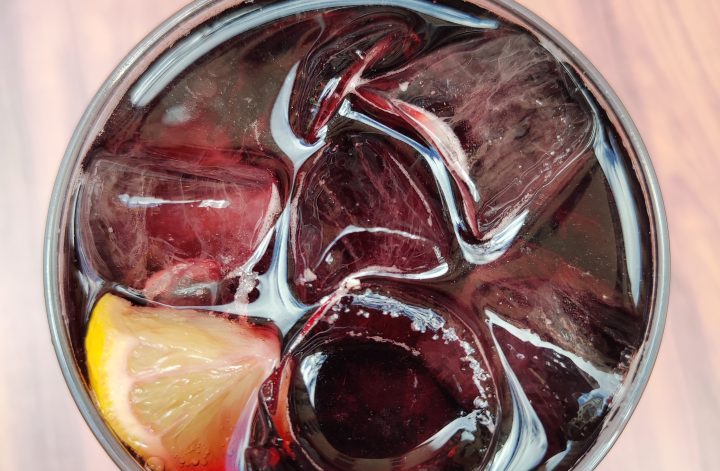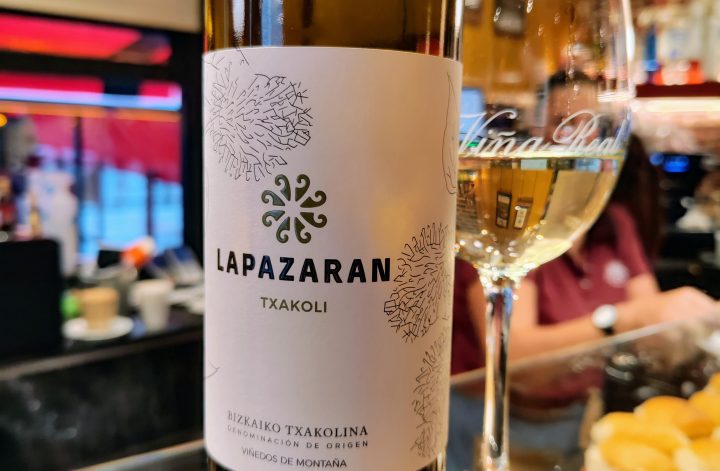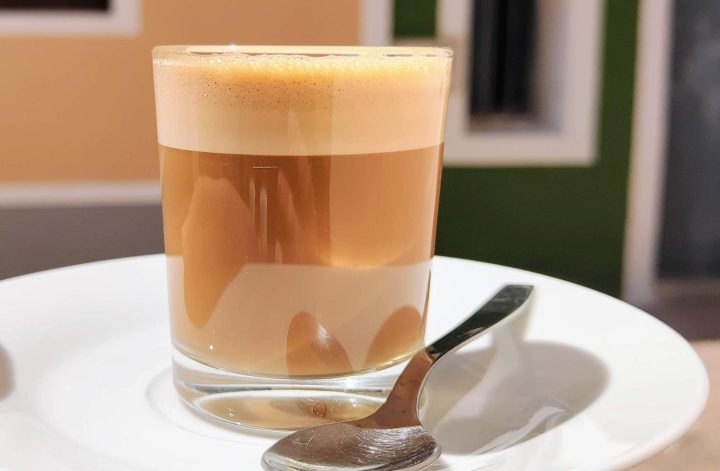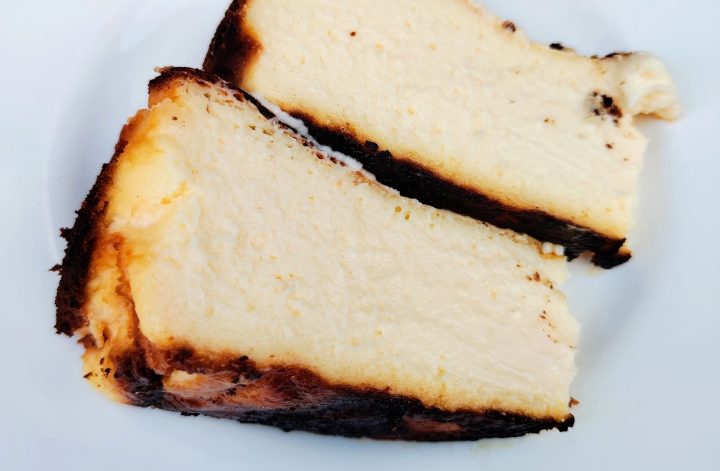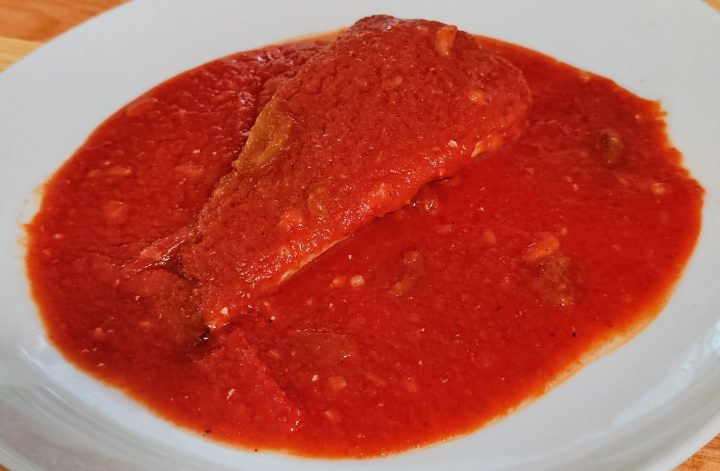Kalimotxo is a popular Basque mixed drink made from red wine and cola. It originated in 1972 at a festival in Getxo, where a group of young people sought to make cheap wine more appealing by mixing it with cola. Variations also include white or rosé wine, Spanish sparkling wine cava, or the addition of espresso. Kalimotxo is a symbol of summer, fun, and the joy of life in the Basque Country.
What to Eat in Spain: Typical Spanish Food and Specialties | Page 3 of 4
Txakoli: Traditional Basque Wine
Txakoli is a traditional, lightly sparkling, and refreshing white wine from the Basque Country, made from local grape varieties. It is characterized by high acidity, low alcohol content, and fresh notes of citrus and green apples. Traditionally served chilled, it is poured in a distinctive manner from a height into wide glasses. Txakoli pairs excellently with local Basque specialties.
Gilda: The Most Famous Basque Pintxo
Pintxo Gilda is the most famous pintxo of all. It is named after the film character Gilda, with the combination of anchovies, spicy peppers, and olives symbolizing her complex personality and sensuality. Gilda is traditionally served as part of "la hora del vermut," a social and gastronomic tradition where people gather before lunch for a glass of vermouth and various tapas. For me, pintxo Gilda is a must-try when visiting the Basque Country.
Idiazabal: Traditional Basque Cheese
Idiazabal is a traditional Basque cheese with a protected designation of origin, produced for centuries from unpasteurized milk of Latxa and Carranzana sheep. This hard cheese is made in both smoked and unsmoked varieties, and it ages for a minimum of two months. The specific diet of sheep grazing on the mountain pastures of the Basque Country, along with the local conditions, give the cheese its distinctive flavor.
Coffee in Spain
Coffee is an integral part of daily life in Spain. Local cafés offer a wide range of coffee drinks, from traditional espresso (café solo) to refreshing iced coffee (café con hielo). Spaniards typically enjoy coffee several times a day, often with milk (café con leche, café cortado). Although Spain is not as renowned for its coffee culture as Italy, it certainly has much to offer coffee lovers.
What to Bring Back from Spain?
My favorite food souvenir from Spain is undoubtedly dried ham. Jamón Ibérico and Jamón Serrano are classic favorites, beloved for their tenderness and distinctive flavor. Chorizo, the traditional Spanish sausage, delights with its spiciness and rich red color. I also regularly bring back a variety of cheeses, such as Basque Idiazabal. And I never miss out on Spanish anchovies.
La Viña Restaurant, San Sebastian: The Best Cheesecake in the World
The burnt cheesecake from La Viña Restaurant in San Sebastian is considered the best in the world. The owner spent years experimenting with the recipe before creating the famous dessert in 1990. The cake has no crust and contains only five ingredients, baking quickly at a high temperature. Due to its media popularity, it has become one of the top gastronomic destinations for visitors to the Basque Country.
How to Eat Cheap in Spain? Try Menú del Día!
"Menú del día" is the Spanish equivalent of a lunch menu. Spanish restaurants offer it from Monday to Friday at a reasonable price between 15-20 EUR. The menu consists of a lighter first course, a heartier second course, and a dessert, and also includes drinks such as beer, wine, or coffee. If you want to sample the simpler Spanish cuisine that locals enjoy for a regular lunch, "menú del día" is a great choice.
Chorizo: Typical Spanish Sausage
Chorizo, one of the most famous Spanish dishes, is a sausage made from ground pork. It is characterized by its distinctive red color due to the use of dried paprika. The flavor of chorizo can range from mildly sweet to intensely spicy. Each region of Spain has its own recipe, differing in the spices used, the processing method, and sometimes even the type of meat. Chorizo is also classified by its degree of curing or shape.
Twelve Grapes of Luck: A Spanish New Year’s Tradition
Eating twelve grapes during the last twelve seconds of the old year is a Spanish New Year's tradition. Each grape represents a wish for one month of the coming year, while also symbolizing the farewell to the past year. It is a custom that unites all of Spain at one moment.
